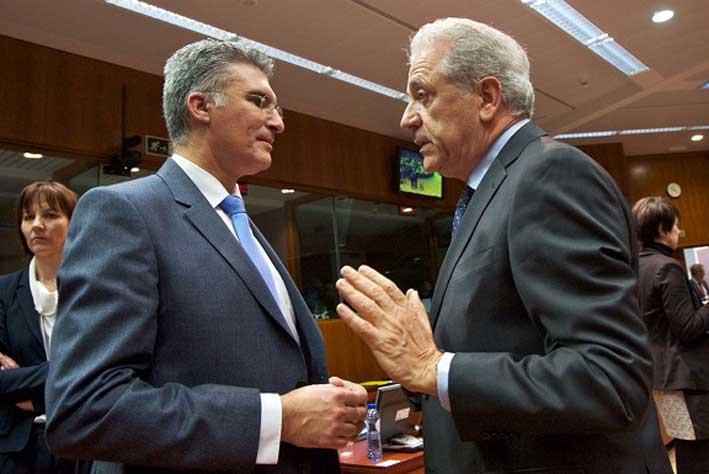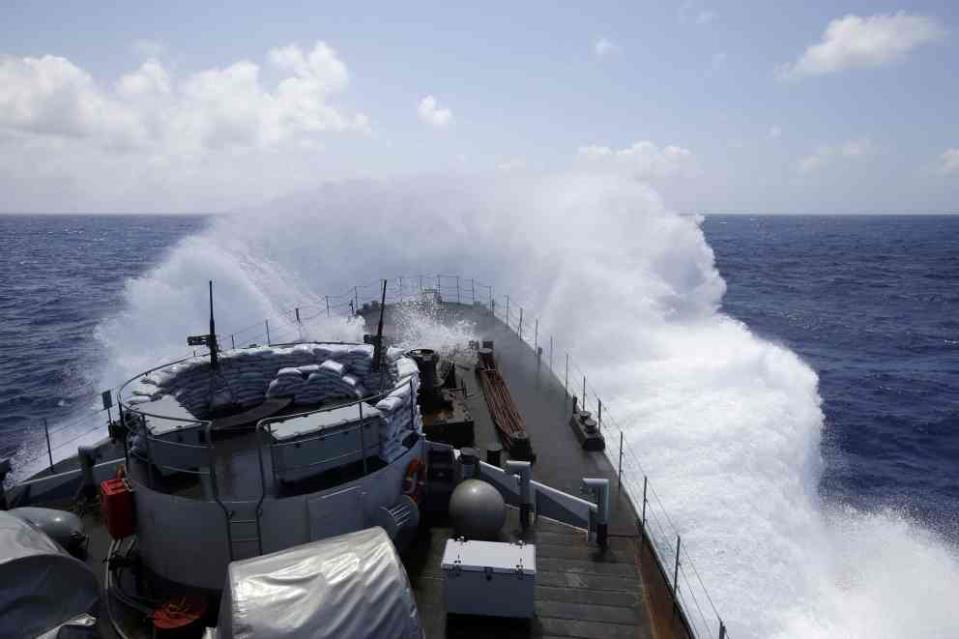The European Commission has dispelled allegations of a secret pact between the Maltese and Italian governments that allegedly saw Malta surrendering oil exploration rights in disputed areas in return for Italy picking up Malta’s share of migrant rescues in its search and rescue area.
Italian MEP Elisabetta Gardini had asked the European Commission to explain the abnormally low numbers of migrants being disembarked in Malta after being rescued at sea, and questioned whether the Commission is aware of any informal agreement between the Maltese and Italian governments related to rescue operations in the Mediterranean.
The question followed allegations in an Italian newspaper that Italy is now taking the migrants “that Malta does not want” in exchange for oil rights in areas under dispute between the Maltese and Italian governments.
Following the accusations, Malta’s Home Affairs Minister Carmelo Abela had revealed an informal agreement between the two countries on migrant rescues, describing it as a sign of political maturity and also noted that, on several occasions in the past, the two countries had bickered over who should carry out search and rescue operations. He also said that the disagreements had come to an end.

Minister Abela’s initial remarks, coupled with the significant decline in the number of migrants rescued and brought to Maltese shores, all point to the existence of some sort of partnership between Italy and Malta. The extremely low number of migrants arriving in Malta over the last year has been seen as inconsistent with the sheer volume of those fleeing via North Africa, in particular Syrians crossing over into Africa and then making the journey to Europe.
The Maritime Squadron of the Armed Forces of Malta has rescued 93 migrants since January 2015, although its search and rescue area covers 250,000 square km between Sicily and Libya while, over the same period, Italy had brought ashore a total of 121,139 migrants it had rescued.
This week, however, European Commissioner for Home Affairs and Migration Dimitris Avramopoulos put paid to the allegations by stating, in reply to the parliamentary question, that the Commission is not aware of any such bilateral agreement and neither is it aware of any alleged “inactivity” on the part of the Maltese armed forces as regards the rescue of migrants. As he explained: “The Commission is not aware of any bilateral agreement between the Maltese and Italian authorities concerning Search and Rescue (SAR) operations in the Mediterranean Sea.

“However, the Commission notes that the operational area of Joint Operation (JO) Triton hosted by Italy, also with the participation of the Maltese assets, covers a large part of the Maltese SAR area defined in accordance with the 1979 International Convention on Maritime Search and Rescue. The disembarkation rules for migrants intercepted/rescued during the JO Triton are set out in the Operational Plan agreed by Frontex, Italy as a host Member State and the other participating member states in accordance with Article 3a (1)(i) of the Frontex Regulation.
“The participating units are authorised by Italy to disembark in principle in its territory all persons intercepted in its territorial sea as well as in the entire operational area. It should also be noted that most of the SAR cases occur outside the pre-defined operational area, largely within the Libyan SAR area.”

The Commissioner also dispelled allegations of inactivity on the part of Malta when it comes to migrant rescues, stating: “The Commission is not aware of any such alleged ‘inactivity’ of the Maltese navy. All the assets participating in JO Triton, including assets of the Armed Forces of Malta, should immediately transmit all information on detected boats in distress to the competent Maritime Rescue Coordination Centre (MRCC) based in Rome, put themselves at the disposal of the MRCC and follow its instructions, including the place of disembarkation.”
As for the question of whether the alleged agreement has had any impact on the Commission’s proposal, and if the proposal is compatible with the principle of burden-sharing, the Commissioner added: “When it comes to the emergency relocation mechanism, the Commission sees it as establishing concrete measures of solidarity and contributing to the fair sharing of responsibilities between member states, in line with Article 80 of the Treaty on the Functioning of the EU.”